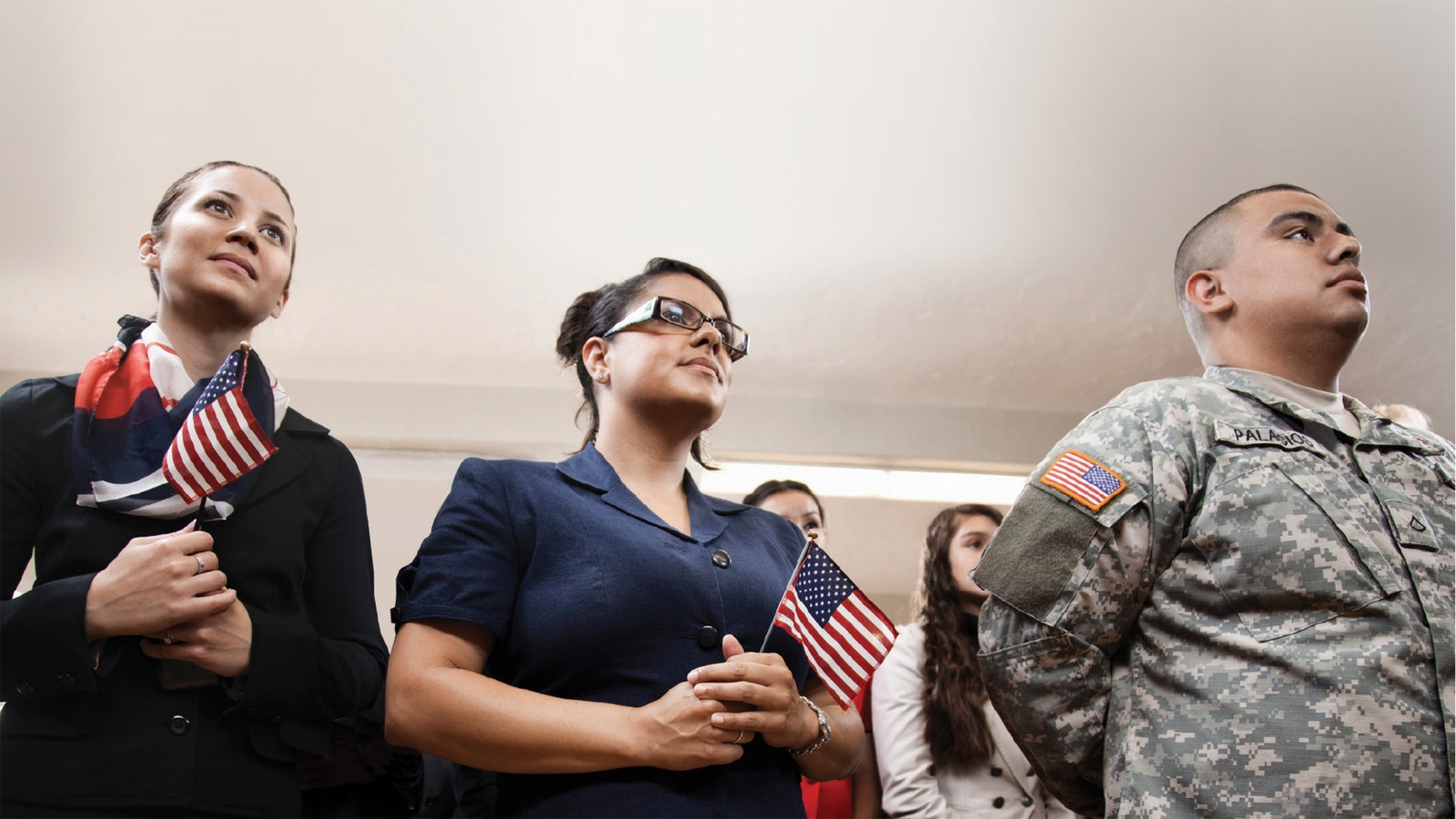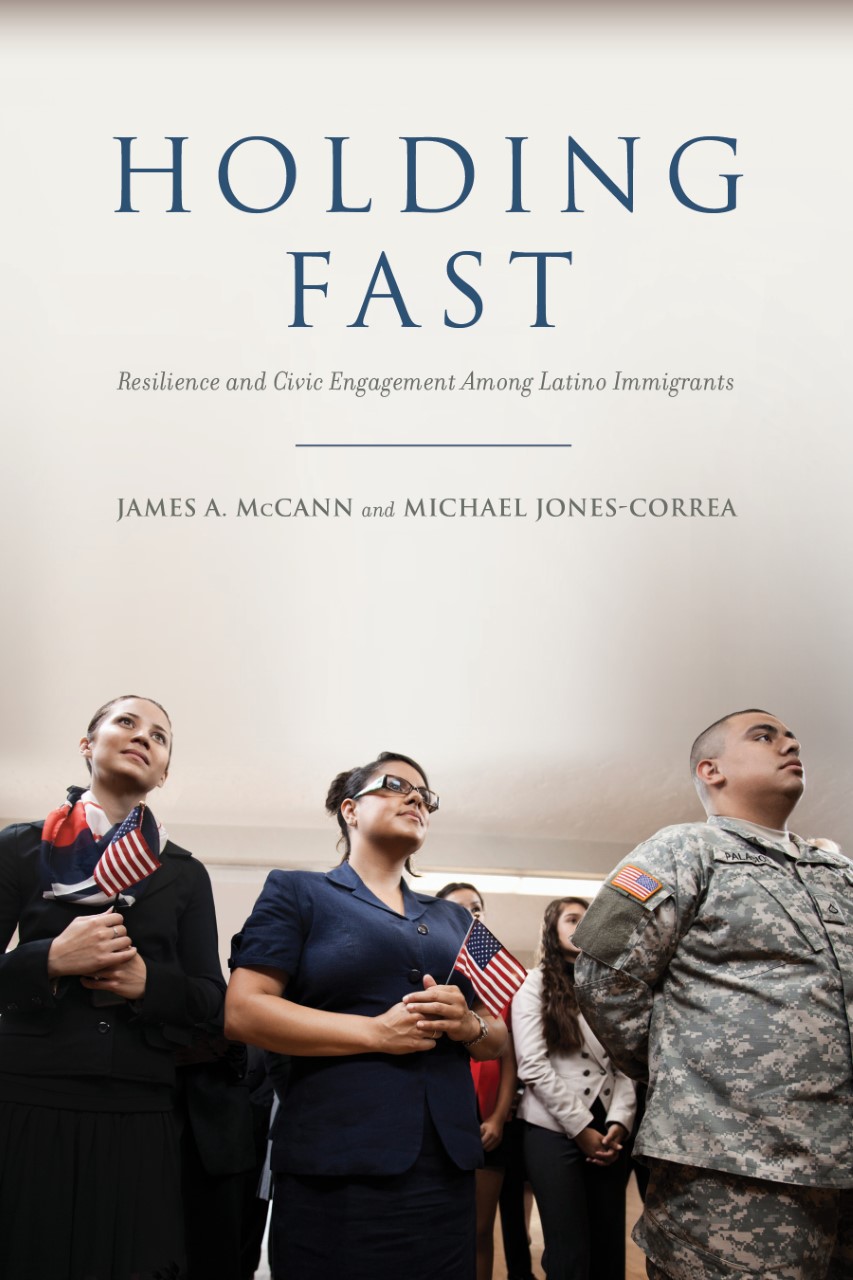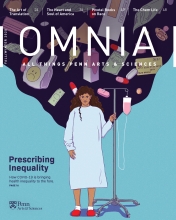Presidential Rhetoric and Civic Participation
Michael Jones-Correa, President’s Distinguished Professor of Political Science, discusses his book, Holding Fast: Resilience and Civic Engagement Among Latino Immigrants.

President Trump’s rhetoric and policy proposals on immigration were front and center in the 2016 presidential election. Michael Jones-Correa, President’s Distinguished Professor of Political Science, wanted to find out how they played into Latino immigrants’ civic behavior. He and James McCann of Purdue University launched a series of ambitious surveys of immigrants’ attitudes before, during, and after Trump’s election. Their findings are laid out in a new book, Holding Fast: Resilience and Civic Engagement Among Latino Immigrants. In it, they describe how, despite the hostile rhetoric, Latino immigrants demonstrated far more civic resilience than withdrawal from political life.
“We were interested in how Latino immigrants learn about politics, especially during a campaign when everyone is getting bombarded by ads and being contacted by campaigns,” says Jones-Correa, also Director of the Center for the Study of Ethnicity, Race, and Immigration. “Immigrants are, too, and so it is a chance for them to learn about politics or to become involved in politics.”
What was distinctive about the 2016 election, according the researchers, is that a candidate was making an anti-immigrant component the center of his platform. “We thought it was going to be a big part of the debate in the campaign, but at that point, nobody really thought Trump would be the candidate or that he would win,” Jones-Correa says.
The researchers began the first wave of the survey in the early fall of 2016. By the time they completed it, Trump was the candidate for the Republican Party. “We still didn’t think he was going to win, but we went ahead and fielded a second survey. Then Trump won, and we knew it was absolutely critical to figure out how immigrants were reacting to a Trump presidency with a third survey.”
If you look at these surveys over this period of time, what we find is a theme of resilience among immigrants They stay engaged and they stay involved. In some respects, they become even more involved over this period of time.
One of the hypotheses in relation to the 2016 election was that immigrants were going underground. “One potential reaction to being threatened by this kind of xenophobic rhetoric is to pull back,” says Jones-Correa, “and the prevailing message in the media was that immigrants were afraid and they were going underground.”
This turned out to not be the case. “If you look at these surveys over this period of time, what we find is a theme of resilience among immigrants,” says Jones-Correa. “They stay engaged and they stay involved. In some respects, they become even more involved over this period of time. Particularly when you look at non-electoral politics, things like volunteering and engaging in protests, those kinds of activities actually increased over this period.”
This civic resilience held true with both legal, permanent residents and undocumented residents. “There's a kind of doubling down, with people saying, ‘We're here and we're going to make our voices heard,’” says Jones-Correa.
The surveys are particularly relevant now that we are in a new election year, the researchers say, because many of these new immigrants are now voters and, perhaps even more importantly, many of their children are voters. Together immigrants and their children will make up slightly more than 20 percent of voters in 2020.
“One of the things that we found was, for instance, that if you knew of someone who had been deported or feared that someone you knew what was going to be deported, this made you more likely to be civically engaged,” says Jones-Correa. “We have a group of new political actors who are worried about themselves but are even more worried for people around them. As we enter into this election cycle in 2020, it's those people who are going to be more engaged.”
Jones-Correa adds that polling data from the 2018 midterms showed that Latino voters turned out at higher-than-expected rates, something that might affect results in key battleground states.
“There's a tendency both among liberals and conservatives to treat immigrants as people who are acted on rather than actors in their own right. The message of this book is that immigrants are significant political actors in their own right, and only going to be more so.”




